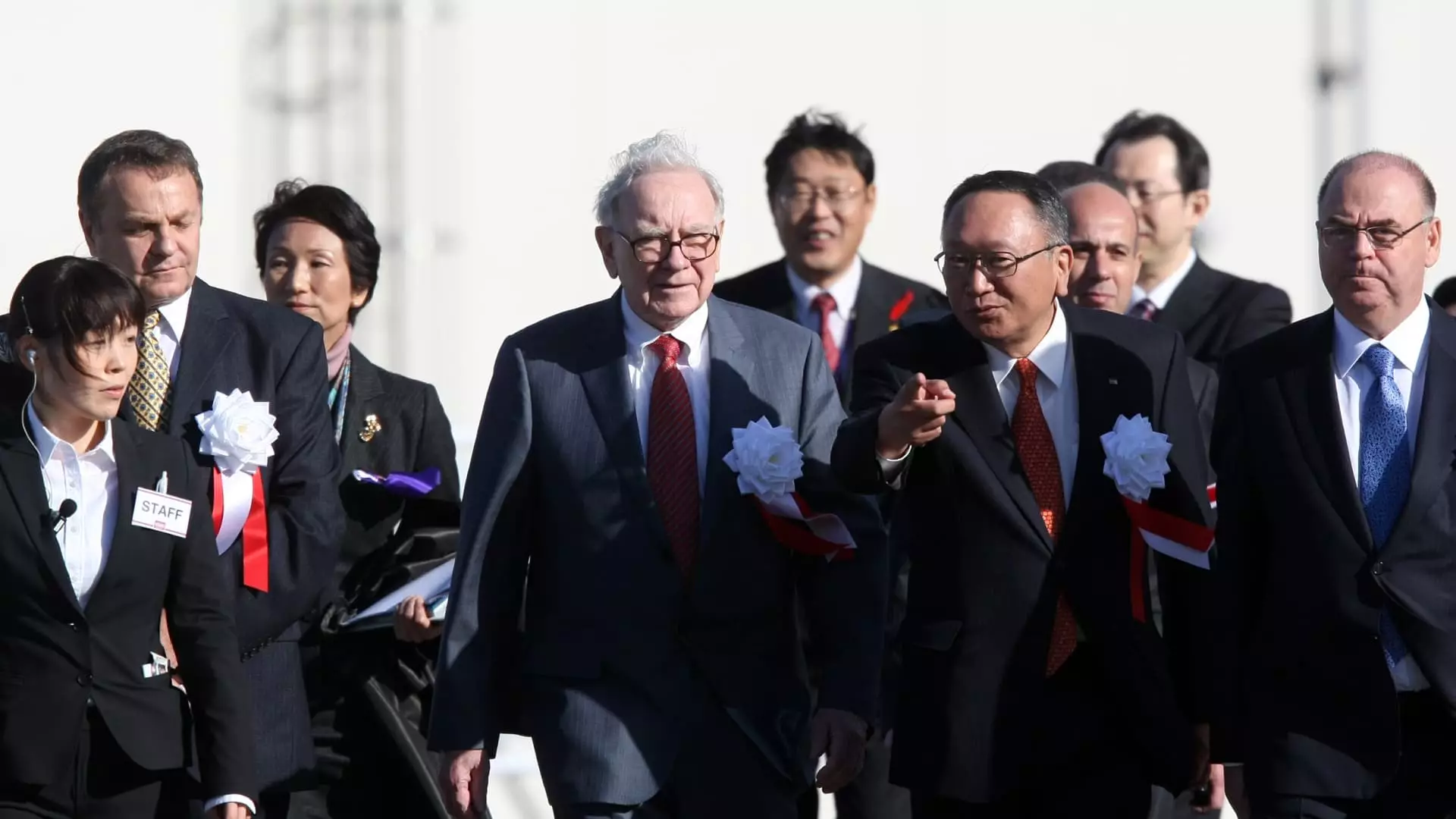Warren Buffett, the renowned CEO of Berkshire Hathaway, has made it clear that his company holds a steadfast commitment to its investments in Japan. In his recent letter to shareholders, Buffett announced an agreement that allows Berkshire to expand its ownership of five major Japanese trading companies beyond the initial limit of 10%. This decision reflects not only confidence in these firms—Itochu, Marubeni, Mitsubishi, Mitsui, and Sumitomo—but also an innovative approach to fostering long-term relationships with entities that share Berkshire’s investment philosophy.
Berkshire first entered the Japanese market in 2019, strategically acquiring stakes in these trading houses, known for their diverse investment portfolios that span multiple sectors both domestically and internationally. Buffett’s latest statements suggest that as they approach their initial ownership ceiling, the willingly cooperative nature of these companies reinforces the mutual recognition of value in their partnership. This collaboration hints at a deeper understanding of the complexities of global investments.
As of the end of 2024, Berkshire’s investments in Japan have demonstrated considerable growth. The market value of its holdings reached $23.5 billion, substantially higher than the $13.8 billion initial cost. Such figures not only highlight the effectiveness of Berkshire’s investment strategy but also reflect the robust management and business acumen of the Japanese trading houses.
However, the past year has posed challenges for these firms, with stock prices for Itochu and Marubeni sliding more than 8% each, and Mitsubishi experiencing a significant drop of 26%. Buffett’s optimism amidst these fluctuations underscores his belief in the enduring potential of the companies within Japan’s dynamic market landscape.
Buffett has also been proactive in navigating foreign exchange risks associated with international investments. By selling Japanese debt to fund Berkshire’s acquisition of shares in these trading houses, he minimizes exposure to currency volatility. Notably, by issuing yen-denominated bonds, Buffett safeguards Berkshire from adverse foreign exchange fluctuations, a move that showcases an advanced level of financial strategy in uncertain markets.
Buffett has reported substantial after-tax gains from these bonds, notably $2.3 billion overall, with $850 million gained in 2024 alone. Such figures illustrate the effectiveness of his yen-balanced strategy, aiming for currency neutrality by balancing potential risks associated with fluctuating exchange rates.
Looking ahead, Buffett envisions that the annual dividend income from Berkshire’s holdings in these Japanese firms will stabilize around $812 million. His projections suggest a sustained commitment to these partnerships and the belief that, under the leadership of designated successor Greg Abel, Berkshire will continue to explore new avenues to enhance collaboration with these trading houses.
Buffett’s confidence in the resilience of these companies aligns with his broader investment philosophy. He expressed a conviction that the Japanese position will be maintained for decades, reaffirming Berkshire Hathaway’s role as a long-term partner rather than a transient investor. As such, the relationship cultivated with these trading firms is expected to evolve, promising mutual benefits for years to come.


Leave a Reply